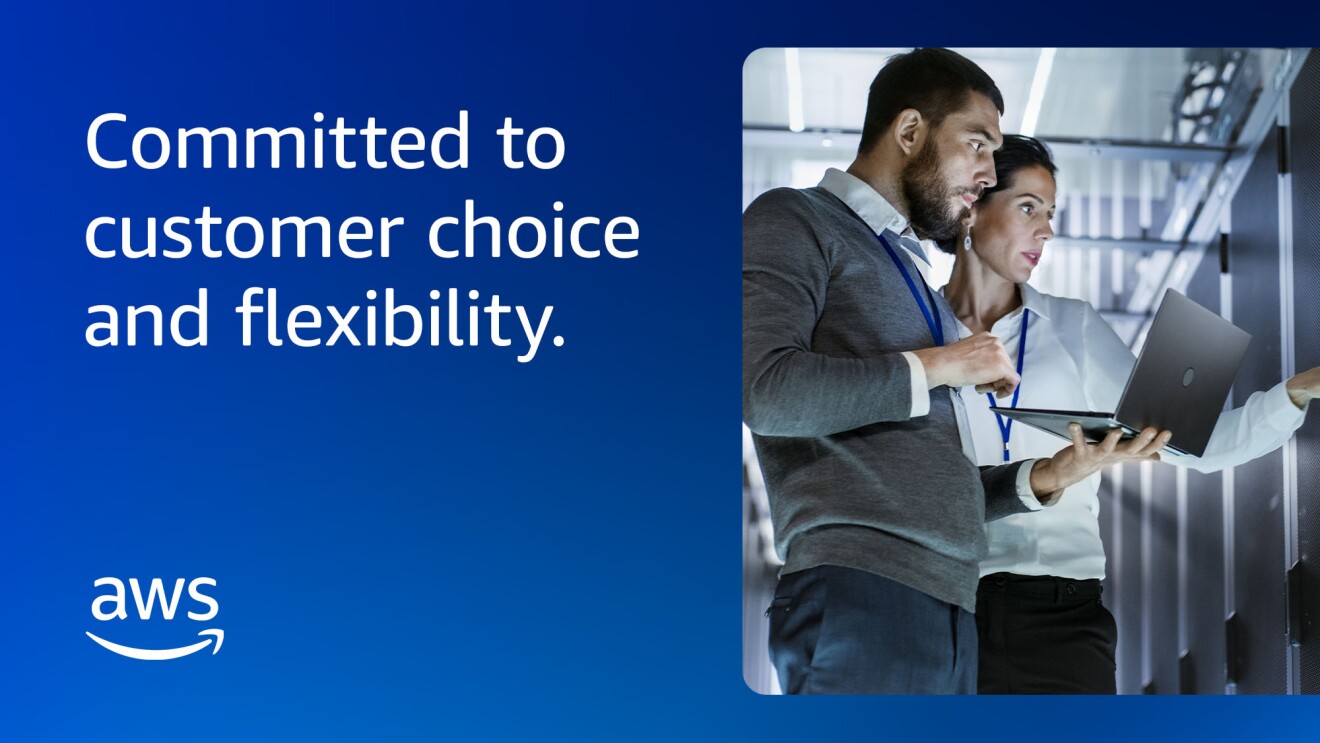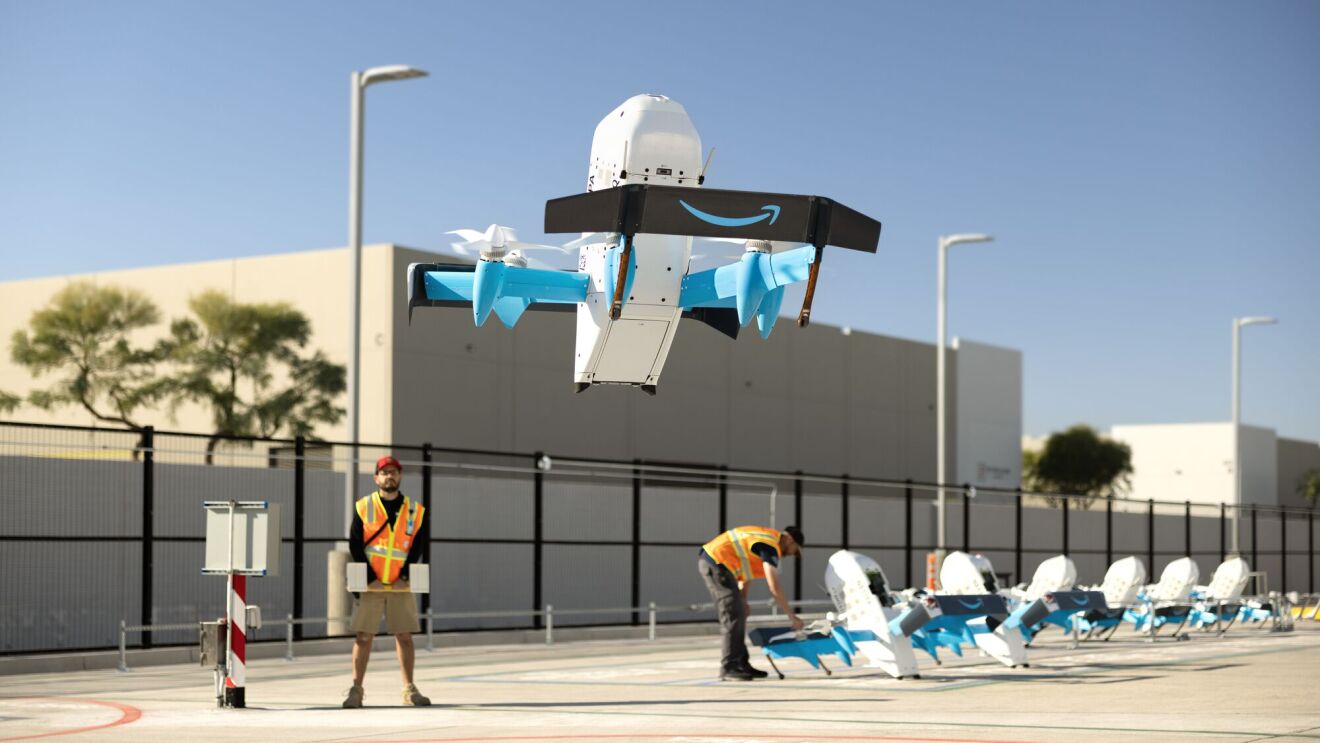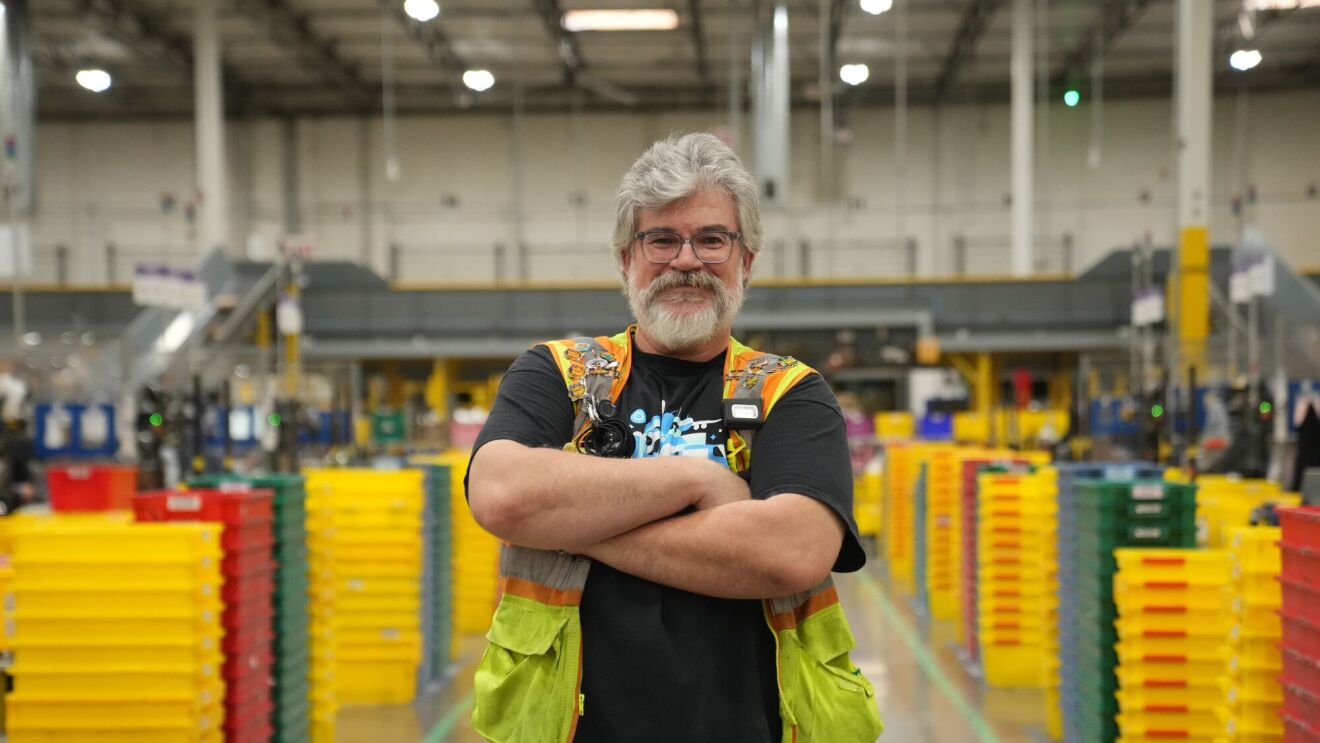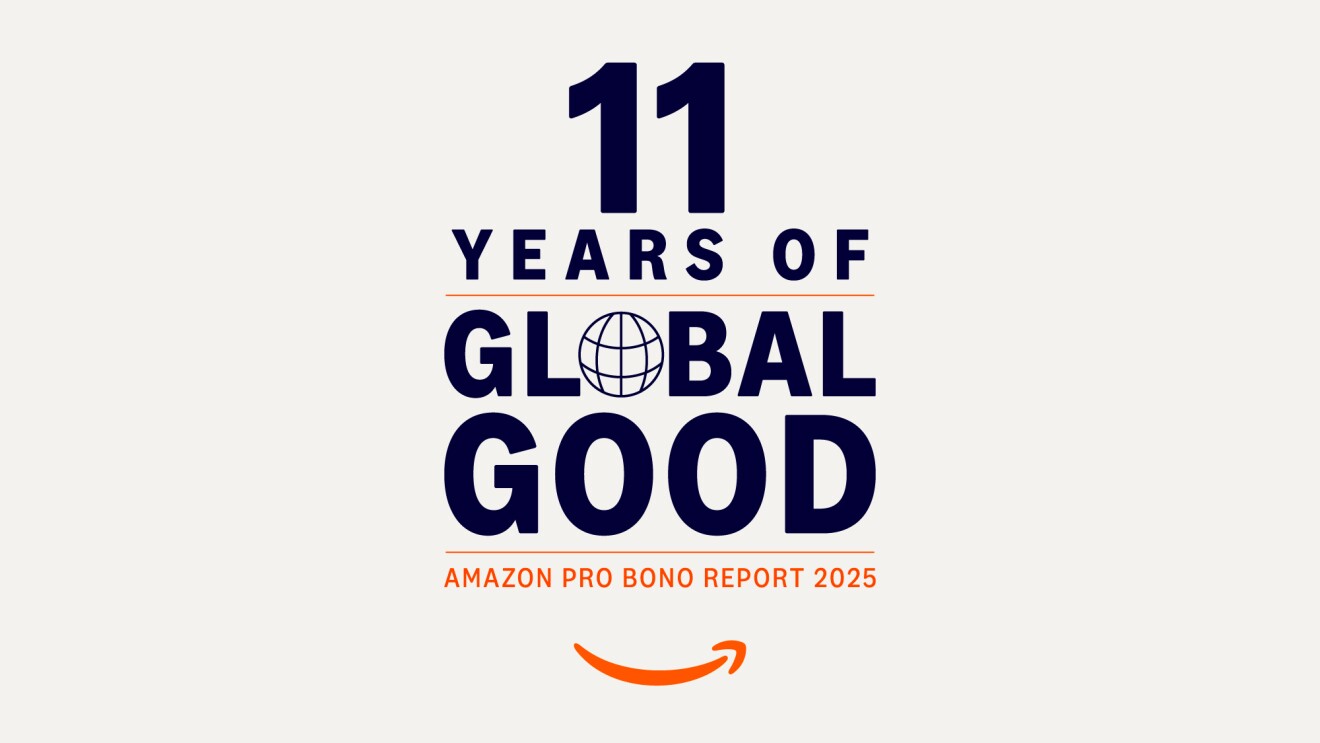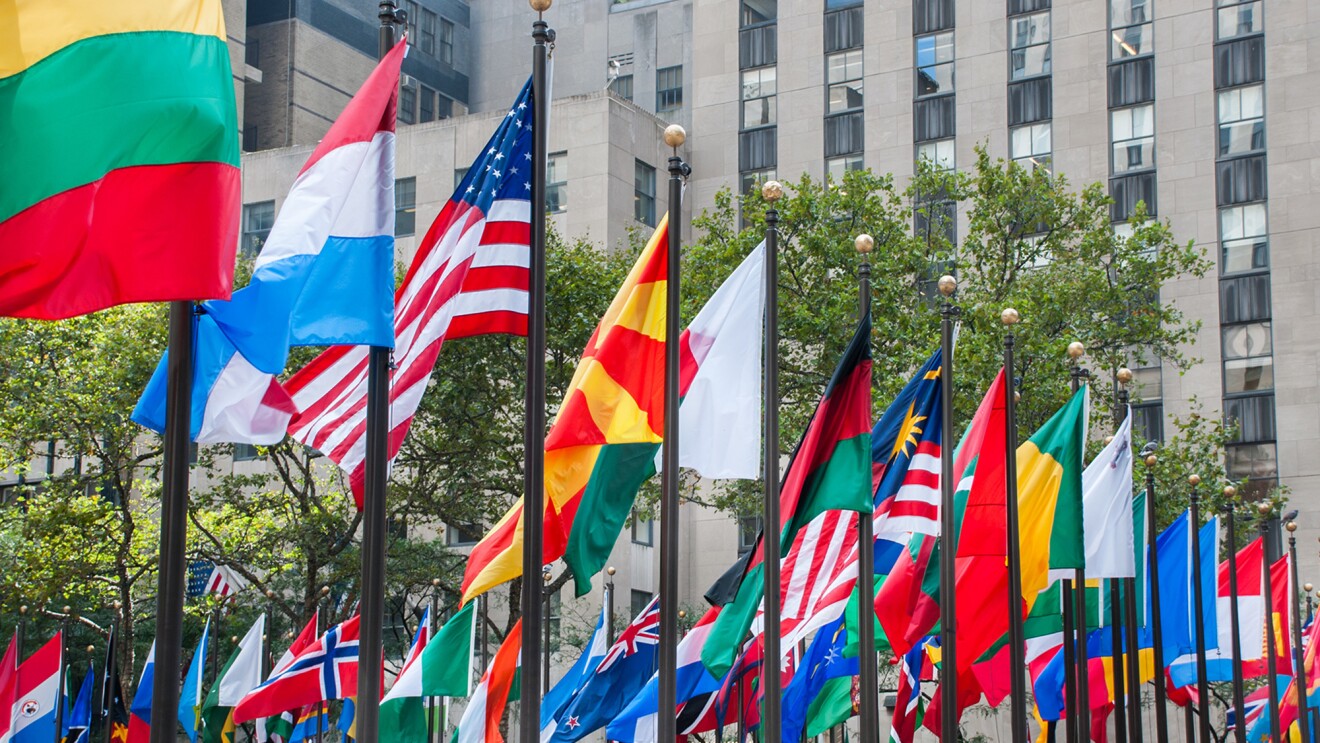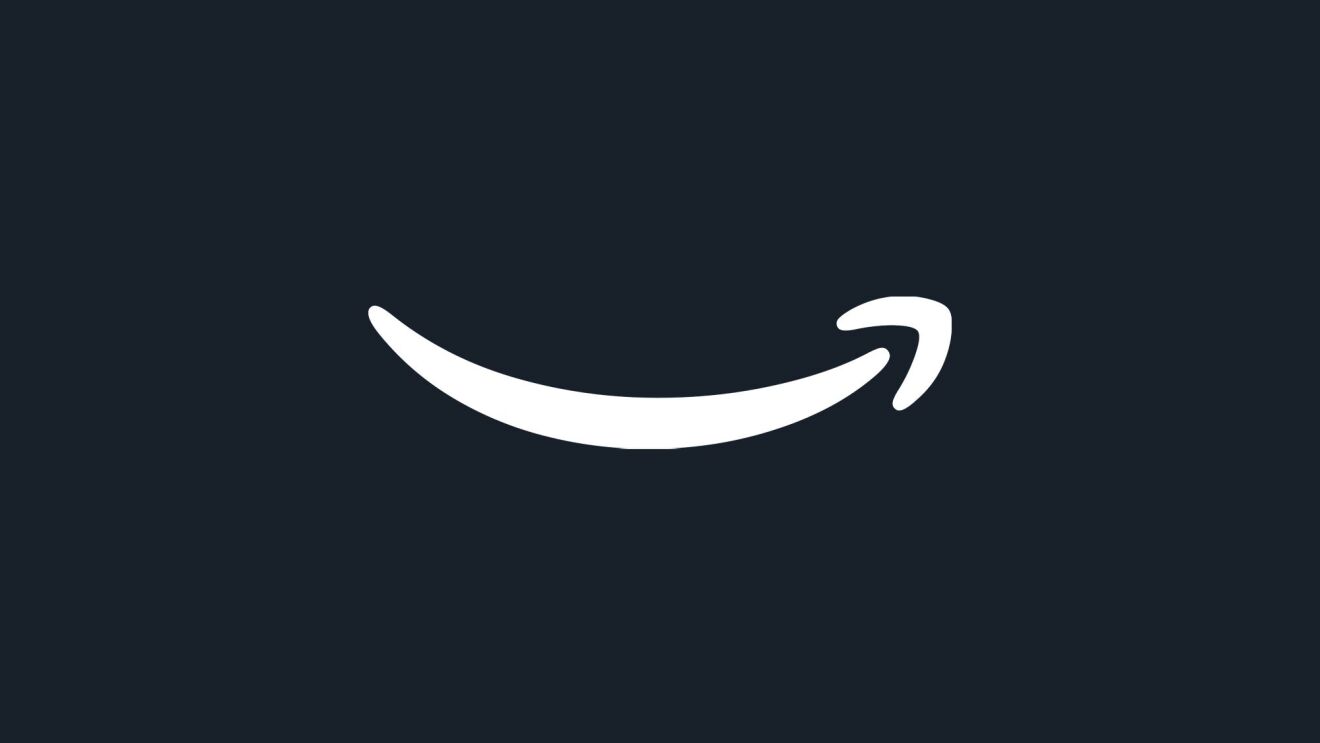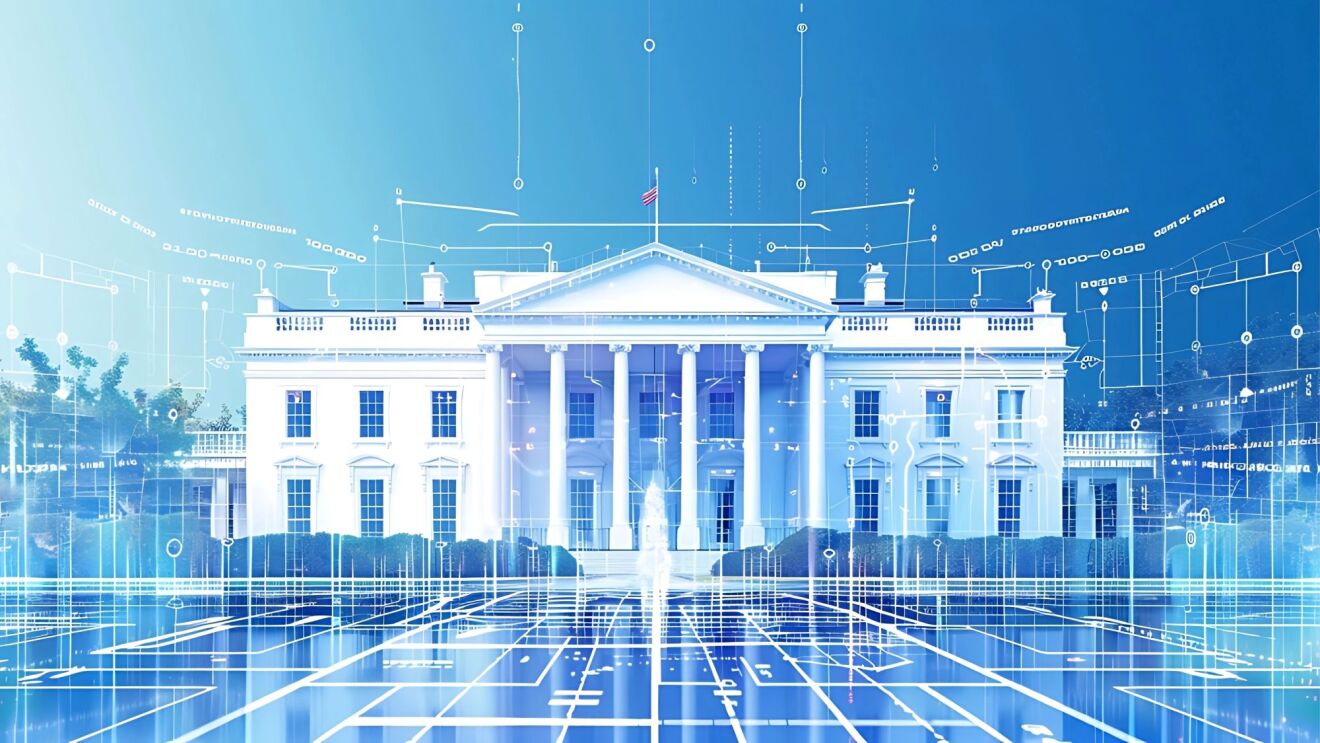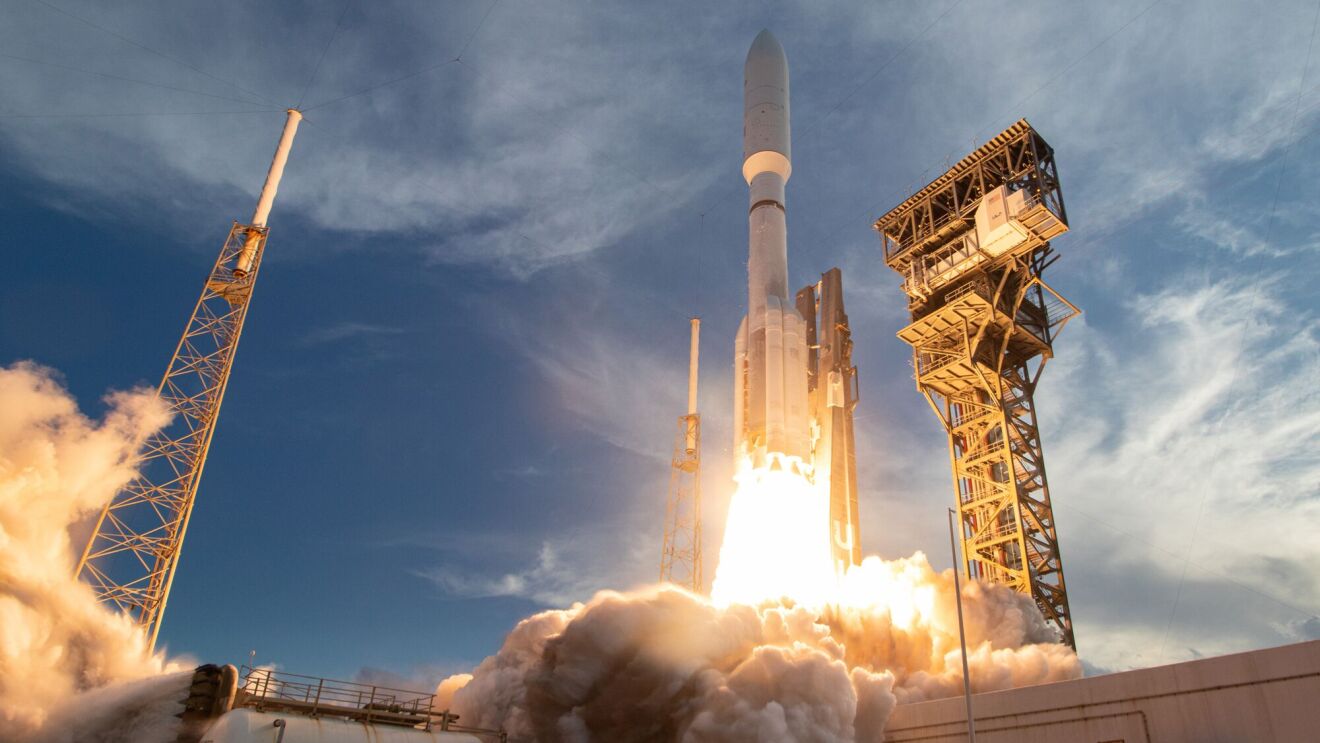When artist and human rights activist Kendall Alaimo decided to gift red seats to raise awareness about human trafficking, she ordered a red metal chair from Amazon and began sending them to universities, institutions, individuals, and leaders at the United Nations General Assembly.
Each red seat represents the anti-trafficking movement, as well as the critical need for stronger action to prevent the heinous crime. A survivor of child sex trafficking herself, Alaimo founded the #Seats4Survivors global campaign. She estimates that she has ordered more than 50 seats to date.
Alaimo recently spoke about her work at the Tech Against Trafficking Summit, which was held at Amazon’s Seattle headquarters. The summit was organized by the global nonprofit Business for Social Responsibility (BSR). Nearly 200 human rights experts and leaders from governments, multilateral organizations, corporations, trade associations, and survivor advocates convened to discuss multi-sector solutions and technologies to address human trafficking issues.
“We are grateful for Amazon’s commitment to work with global anti-trafficking stakeholders to fast-track the way technology is leveraged to prevent and remedy human trafficking.”
Claudio Formisano, director of Tech Against Trafficking and global modern slavery lead at BSR.
During the summit, Alaimo presented one of her red seats to Amazon’s Worldwide Social Responsibility team to recognize Amazon’s dedication to preventing human trafficking and forced labor in its global value chains.
“The red seats symbolize the fundamental human right of freedom we’re all entitled to, and raise awareness that human trafficking and modern slavery is still happening in communities globally. They encourage employers to consider hiring survivors and taking steps to support their need for economic equity,” said Alaimo. “I applaud Amazon and Tech Against Trafficking’s efforts to help convene human rights leaders from business, government, and civil society to find shared solutions to this critical problem. We all have a role to play to ensure people everywhere feel safe, and survivors have a clear pathway to recovery and true freedom.”
“At Amazon, we’ve had a tradition of reserving an empty seat in important meetings, which symbolizes the unspoken voice of our customers,” said LeighAnne DeWine, director of worldwide social responsibility at Amazon. “We’re honored to receive a red seat from Kendall, which will serve as an important reminder of our commitment to ensuring that the voices of the people and communities supporting our value chain are heard and treated with respect.”
The summit also included presentations on the latest technological tools being used to detect and disrupt trafficking and to ensure privacy around the use of trafficking data. Tech Against Trafficking announced the next two participants in its Accelerator program: Polaris and Issara Institute. The TAT Accelerator was developed to help organizations that deploy promising technological solutions accelerate the development, impact, and use of their tools.
“We are grateful for Amazon’s commitment to work with global anti-trafficking stakeholders to fast-track the way technology is leveraged to prevent and remedy human trafficking,” said Claudio Formisano, director of Tech Against Trafficking and global modern slavery lead at BSR. “Kendall’s work reminds us that such collective action must be centered on individuals’ lives and experiences.”
There are several ways Amazon works diligently to provide products and services in a way that respects internationally recognized human rights, and partners with government and nonprofit groups to collaborate on new technological advances in this space:
- Amazon is a member of the Responsible Business Alliance and the Responsible Labor Initiative. These organizations help support the rights and well-being of workers in our supply chain who are most vulnerable to forced labor.
- Through AWS, we’re working with Polaris, which runs the U.S. National Human Trafficking Hotline. Polaris has handled more than 330,000 calls, texts, and emails, and identified more than 73,000 victims of human trafficking since 2007. AWS works with Polaris to drive development of the largest known U.S. data set on trafficking.
- Amazon sponsors the UK modern slavery helpline, Unseen, which provides services to potential victims of modern slavery.
- Through AWS, we support Thorn, an NGO that works to fight child sexual abuse. AWS machine learning powers Thorn’s tool called Spotlight, allowing investigators to sift through approximately 200,000 online escort ads daily and identify instances where sex traffickers advertise children.
- Amazon is supporting the Open Supply Hub, a free, open-data platform that will enable brands to share data and identify supply chain risks in the apparel, beauty, consumer goods, electronics, furniture, and sporting goods sectors. This will improve the lives of vulnerable people working in global supply chains.
Trending news and stories



